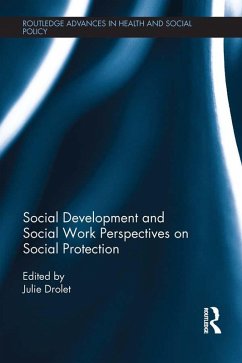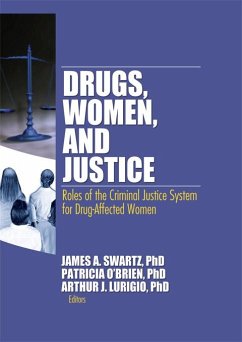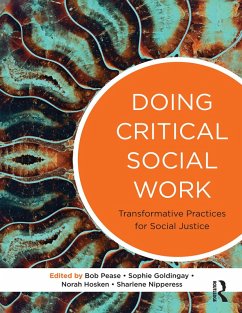
Globalisation, Global Justice and Social Work (eBook, ePUB)
Versandkostenfrei!
Sofort per Download lieferbar
57,95 €
inkl. MwSt.
Weitere Ausgaben:

PAYBACK Punkte
29 °P sammeln!
Globalization has become a seemingly unstoppable force over recent decades and, in its wake, global notions of social justice have developed in response to its negative aspects. Neo-liberal economic policies have been a key element in the wider process of globalization, and these policies have had a profound impact on welfare provision and the shape of social work practice. Arising dissatisfaction among users of welfare and social work services is fuelling the search for a new, more radical social work that is firmly rooted in principles of social justice.Globalisation, Global Justice and Soci...
Globalization has become a seemingly unstoppable force over recent decades and, in its wake, global notions of social justice have developed in response to its negative aspects. Neo-liberal economic policies have been a key element in the wider process of globalization, and these policies have had a profound impact on welfare provision and the shape of social work practice. Arising dissatisfaction among users of welfare and social work services is fuelling the search for a new, more radical social work that is firmly rooted in principles of social justice.
Globalisation, Global Justice and Social Work explores the global effects of neo-liberal policies on welfare services in different countries, with contributions from social work academics, practitioners and welfare activists around the world. The first section of the book presents case studies of impact of neo-liberalism on welfare systems, social service provision and the practice of social work. In the second section the chapters explore the relationship between social work practice and the struggle for social justice. Authors discuss the personal and political dilemmas they have had to address in seeking to link a personal commitment to social justice with their daily practice as workers and educators in social work. The final section assesses the prospects for social work practice based on notions of social justice, by looking at what can be learned from the experience of previous radical movements as well as from emergent global and local movements.
Globalisation, Global Justice and Social Work explores the global effects of neo-liberal policies on welfare services in different countries, with contributions from social work academics, practitioners and welfare activists around the world. The first section of the book presents case studies of impact of neo-liberalism on welfare systems, social service provision and the practice of social work. In the second section the chapters explore the relationship between social work practice and the struggle for social justice. Authors discuss the personal and political dilemmas they have had to address in seeking to link a personal commitment to social justice with their daily practice as workers and educators in social work. The final section assesses the prospects for social work practice based on notions of social justice, by looking at what can be learned from the experience of previous radical movements as well as from emergent global and local movements.
Dieser Download kann aus rechtlichen Gründen nur mit Rechnungsadresse in A, B, BG, CY, CZ, D, DK, EW, E, FIN, F, GR, HR, H, IRL, I, LT, L, LR, M, NL, PL, P, R, S, SLO, SK ausgeliefert werden.













